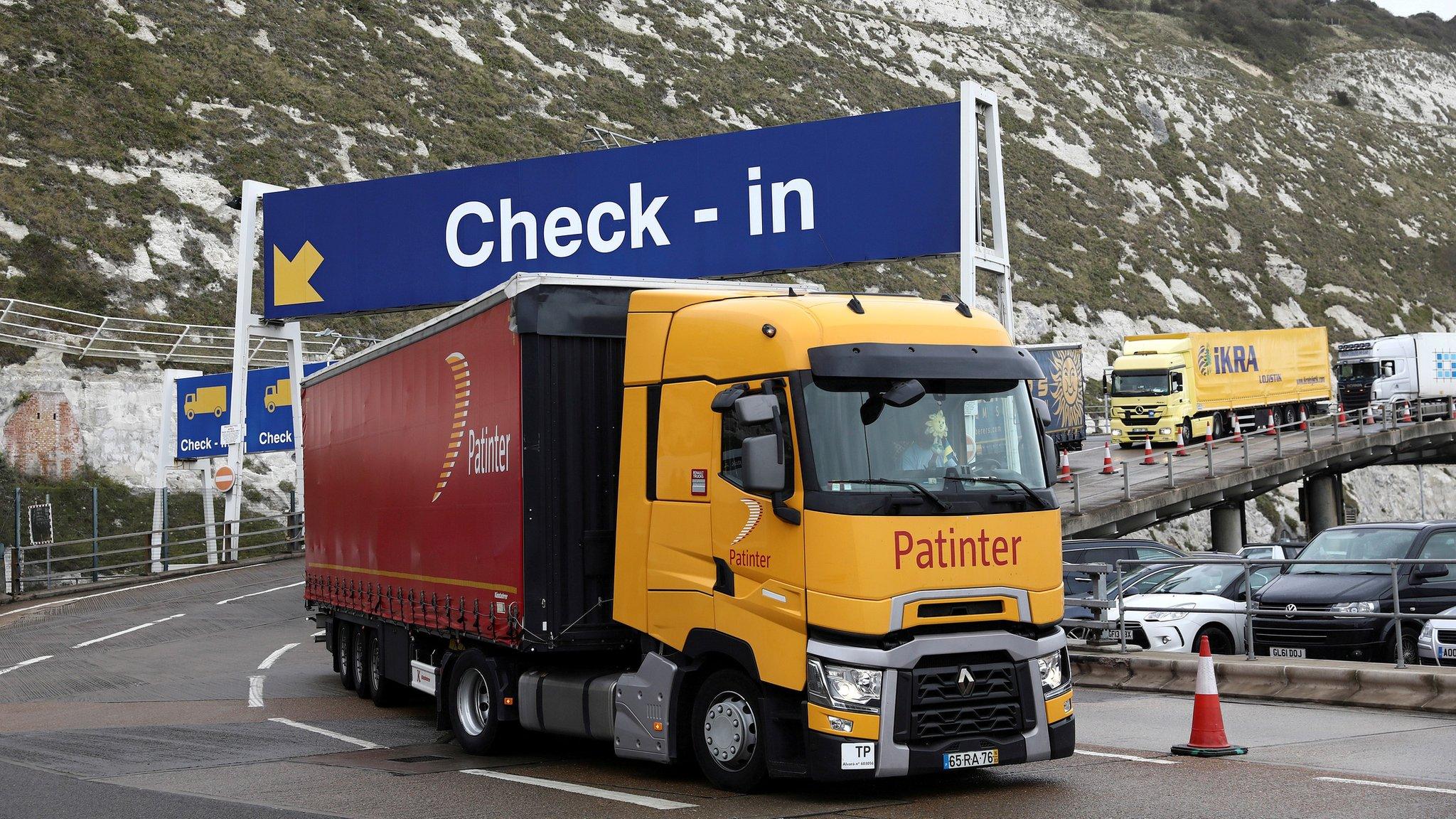Brexit: Why has UK trade with Germany fallen so dramatically?
- Published

A lorry driver arrives at Dover early in the morning on 1 January 2021
There's been a huge fall in trade between the UK and Germany during the first month of the new trading relationship between the UK and the EU.
According to Germany's Federal Statistical Office, external, imports from the UK in January were down more than 56% compared with the same month in 2020. This is roughly equivalent to 2.1bn euros (£1.8bn) of lost trade.
Exports to the UK were also down 29%.
The Covid effect?
It's not yet clear how much of this is linked directly to the terms of the new EU-UK trade agreement, external, nor how much of it will turn out to be permanent.
Certainly, the slowdown is not simply about post-Brexit trade rules.
The coronavirus pandemic has played a role in reducing trade flows. German imports worldwide were down nearly 10% year-on-year in January, and exports down 8%.
There is also another issue specific to the UK.
A large amount of stockpiling took place in December, as businesses prepared for possible disruption in advance of Britain leaving the single market and the customs union. So, that meant less trade in January.
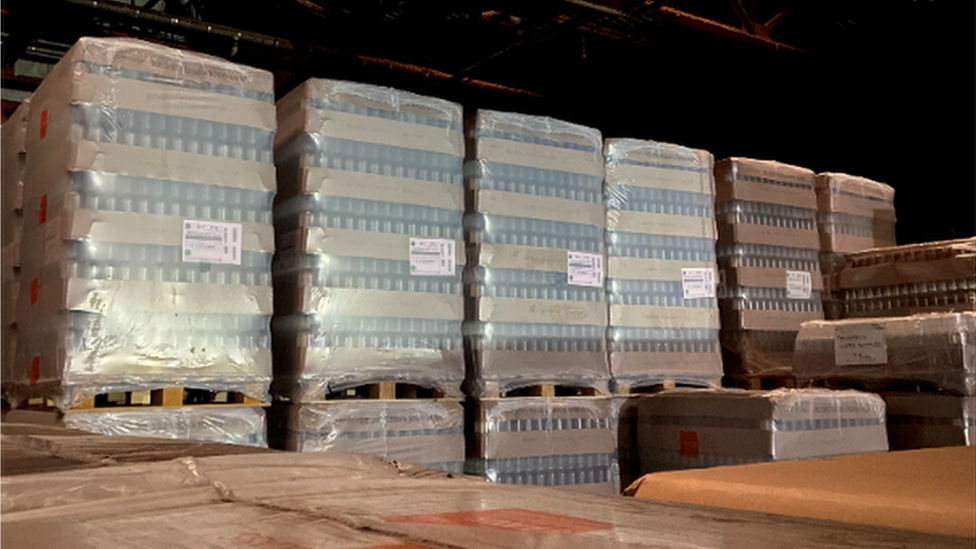
Welsh whisky producer Penderyn said in December it was stockpiling the glass bottles it imports from Europe
However, the change in post-Brexit rules - with substantial barriers to trade emerging between the UK and the EU - had a big part to play.
EU trade with the UK has been falling since the Brexit referendum in 2016, but the German statistics for January 2021 are by far the most dramatic decline seen so far.
French customs figures, external show imports from the UK in January fell by 20% compared with an average of the previous six months, and exports fell by 13%. That is a comparison which already takes disruption caused by Covid into account.
A fuller picture of trade with the whole of Europe will emerge on Friday, when the UK releases its own official trade figures for January.
Teething problems?
The government insists the disruption to trade in January was temporary.
So, the more important question may be what the figures for February will look like.
Looking further ahead, what will trade look like in a year's time, once businesses have had longer to adjust to the new regime?
"Our management information shows that overall freight volumes between the UK and the EU are back to their normal levels," a government spokesperson said.
"This has been possible thanks to the hard work put in by traders and hauliers to prepare for the end of the transition period."
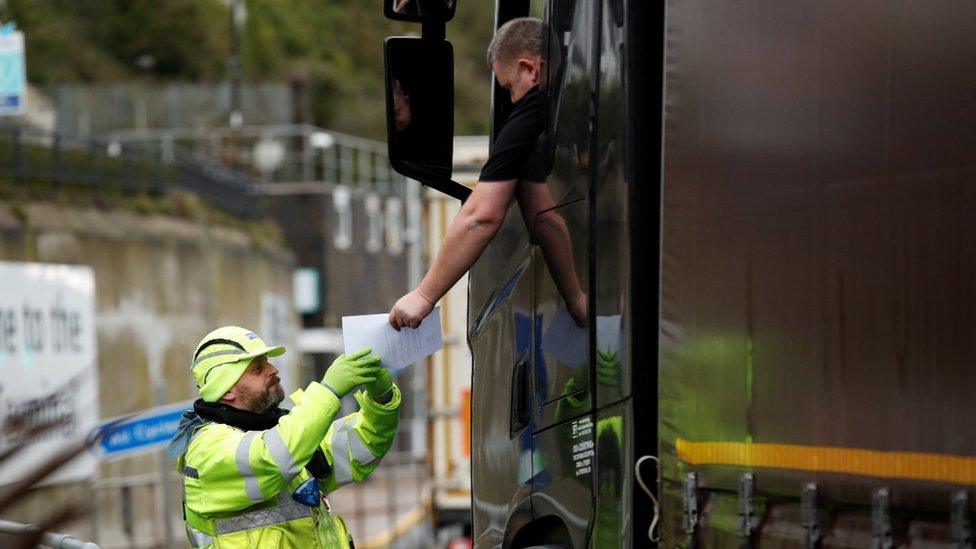
There have been some issues with paperwork for drivers travelling to the European mainland
But freight volumes include empty lorries, and there are far more of them leaving the UK than there used to be. The Cabinet Office has also been criticised by the UK Statistics Authority, external for using unverifiable data to argue that January was just a blip.
Plenty of people in the import-export sector dispute the government's argument that what we are seeing at the moment are simply "teething problems", which will soon be resolved.
Businesses consulted by the Food and Drink Federation in the second half of February said the volume of goods they have exported to the EU so far this year is down by an average of 44%.
And freight volumes coming in from the Republic of Ireland towards the end of February, for example, were still nearly 50% down on the same period last year.
Long-term forecast
January looks set to be an extreme example, combining the worst effects of post-Brexit trade rules and the Covid pandemic.
But academics from the London School of Economics have forecast that overall UK trade with the EU could fall by about a third, external over the next decade, under the new trading terms.
It is only a forecast, and forecasts have been proven wrong in the past.
However, if it is anywhere close to being correct, the UK is going to have to do an awful lot of trade elsewhere in the world to try to make up the shortfall.
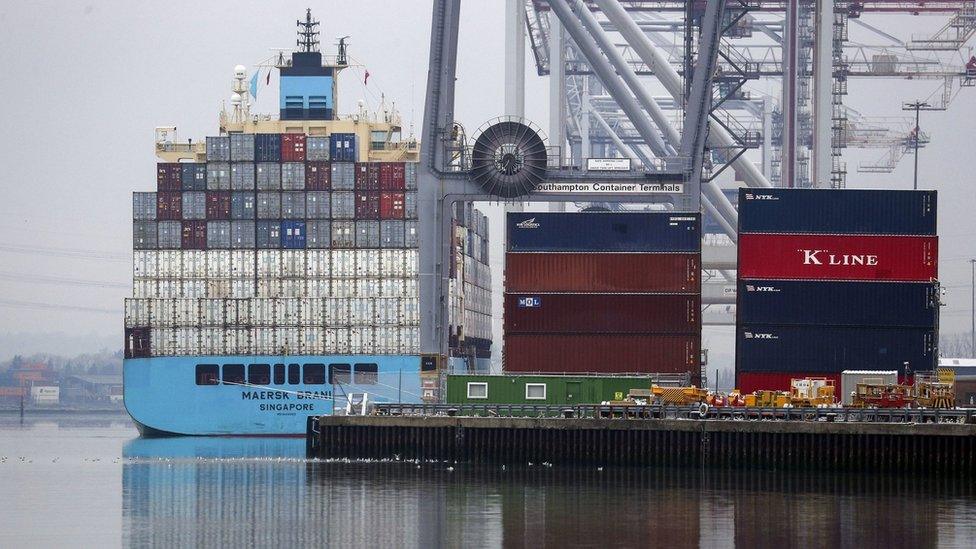
The government hopes its eight proposed freeports will help boost international trade
The government says its focus now is on making sure that any business that is still facing challenges gets the support they need to trade effectively with the EU, and that all businesses benefit from the new free trade agreements being struck around the world.
However, with very small exceptions, those agreements simply mirror deals the UK was already part of when it was a member of the EU.


- Published4 March 2021
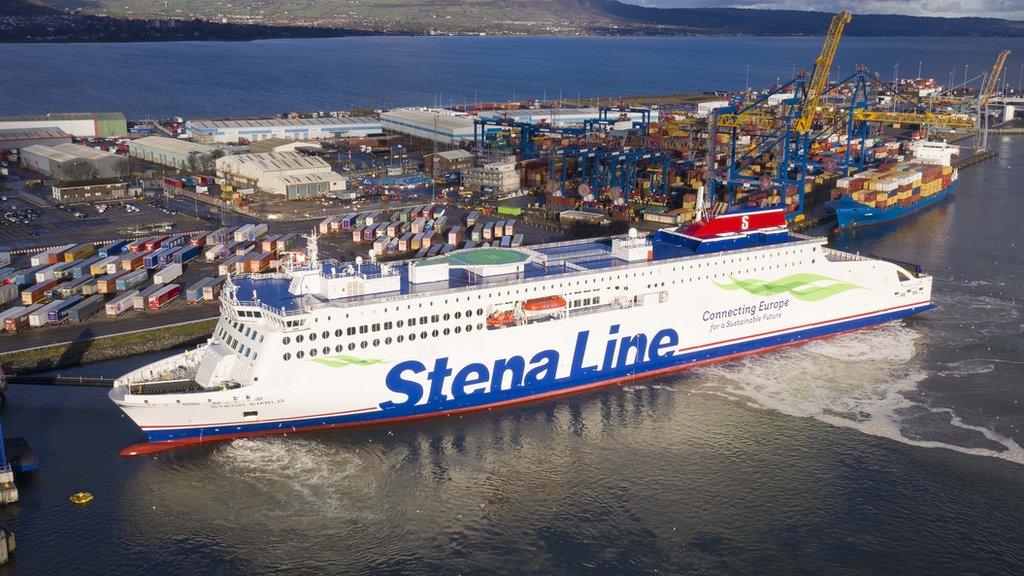
- Published22 March 2023

- Published17 February 2021
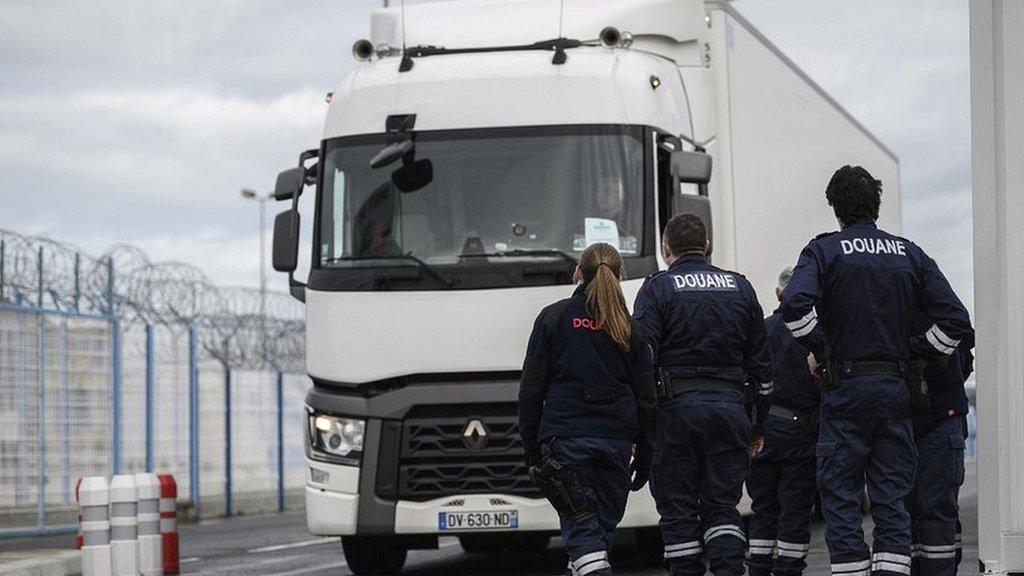
- Published26 January 2024
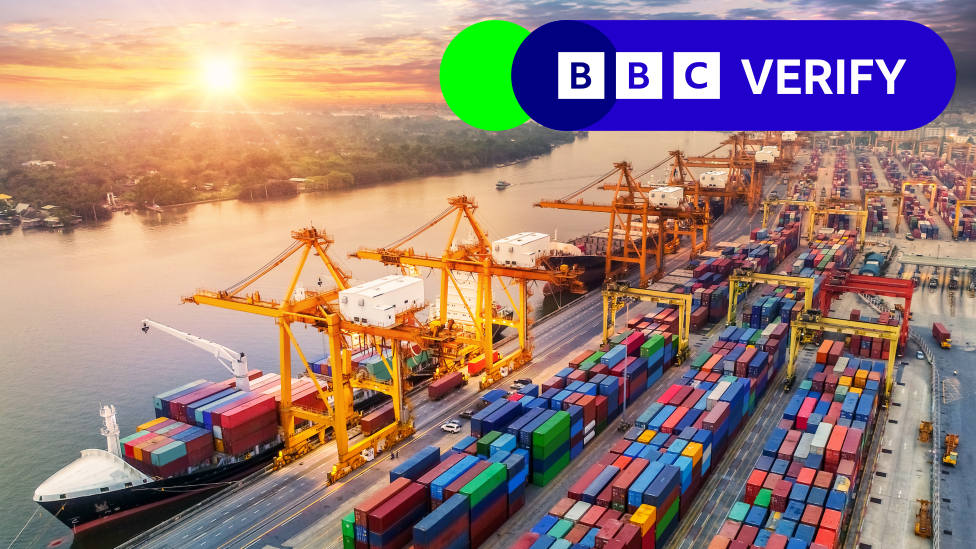
- Published1 January 2021
